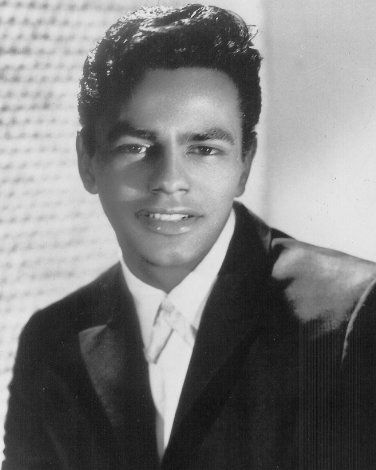Imagine a time of immense social change, a time when music wasn't just entertainment, but a powerful tool for expression, protest, and change. The 1960s was such a decade, and at the forefront of this cultural revolution were Black singers who used their voices to articulate the hopes, dreams, and struggles of a community fighting for equality. Their music wasn't just about catchy tunes; it was about amplifying voices that had long been silenced.
These artists weren't just singers; they were storytellers, revolutionaries, and icons. From the soulful melodies of Motown to the powerful anthems of the Civil Rights Movement, Black singers of the 60s created a soundtrack that echoed the changing times. They challenged racial barriers, pushed musical boundaries, and left an indelible mark on the world stage.
Understanding the impact of Black singers of the 60s requires understanding the context of the time. The Civil Rights Movement was in full swing, and music became an integral part of the struggle. Artists like Sam Cooke, with his stirring anthem "A Change is Gonna Come," and Nina Simone, with her powerful voice demanding "Mississippi Goddam," reflected the anger, frustration, and hope of a generation.
Beyond the context of protest, Black singers of the 60s also redefined popular music. Motown, with its signature sound and legendary artists like Diana Ross & The Supremes, Marvin Gaye, and Stevie Wonder, brought soulful melodies and infectious rhythms to a global audience, breaking down racial barriers in the process. These artists weren't just making music; they were making history.
Exploring the music of Black singers of the 60s is like taking a journey through time. It's an opportunity to experience the raw emotion, the fight for justice, and the undeniable talent that characterized a pivotal era. Through their music, we gain a deeper understanding not only of the past, but also of the present, as their influence continues to resonate with artists and audiences today.
One of the most notable aspects of this era was the emergence of distinct musical styles. For example, the sound of Motown, emanating from Detroit, Michigan, quickly became a sensation. This style, characterized by its upbeat tempos, catchy melodies, and polished production, brought a sense of joy and escapism to audiences worldwide. Artists like The Temptations, with their intricate harmonies and energetic performances, and Martha and the Vandellas, known for their powerful vocals and soulful delivery, exemplified the Motown sound.
Beyond Motown, soul music, with its raw emotion and heartfelt lyrics, captivated listeners. Aretha Franklin, often hailed as the "Queen of Soul," possessed a vocal range and power that left audiences mesmerized. Her songs, including "Respect" and "Think," became anthems for empowerment and self-respect, particularly for women during a time of significant social change.
The music of Black singers of the 60s wasn't confined to just one genre. Jazz, a genre deeply rooted in Black American culture, continued to evolve and flourish. John Coltrane, with his experimental and improvisational approach to saxophone playing, pushed the boundaries of the genre, while Miles Davis, a true innovator, constantly explored new sounds and collaborations, leaving an indelible mark on the history of jazz.
To delve into the music of this era is to embark on a journey of discovery. Here are a few suggestions to get you started:
- Explore the Motown catalog: Listen to iconic artists like The Supremes, The Temptations, Marvin Gaye, and Stevie Wonder. Pay attention to the catchy melodies, intricate harmonies, and infectious rhythms that define the Motown sound.
- Immerse yourself in the world of soul: Explore the powerful vocals and heartfelt lyrics of Aretha Franklin, Otis Redding, and Sam Cooke. Experience the raw emotion and vulnerability that characterize this genre.
- Discover the evolving world of jazz: Explore the innovative sounds of John Coltrane, Miles Davis, and Charles Mingus. Pay attention to the improvisation, experimentation, and technical mastery that define their music.
Listening to the music of Black singers of the 60s isn't just about enjoying great tunes; it's about connecting with a pivotal moment in history and understanding the power of music as a tool for change and expression. As you explore this rich musical landscape, consider the social and political context, the evolution of different genres, and the lasting impact these artists have had on music and culture today.
Pink grunge aesthetic pfp a subculture in pixels
Unlocking instagram engagement the power of emoji copy and paste
The enduring allure of a letter opener a crossword clue conundrum
Famous Male Black Singers 60s - Khao Tick On
35 Best 60s Female Singers (Most Famous) - Khao Tick On
black singers of the 60s - Khao Tick On
black singers of the 60s - Khao Tick On
8 Most Famous Black Singers Of The 1960s - Khao Tick On
Koji je country pjevač bio u mornarici? - Khao Tick On
11 Black Male Singers Of The 70s - Khao Tick On
black singers of the 60s - Khao Tick On
Aretha Franklin Deserves More Respect - Khao Tick On
7 Black Male Singers Of The 60s - Khao Tick On
7 Pioneering Black Female Singers Who Made Music History - Khao Tick On
20 Famous Singers of the 1960s - Khao Tick On
60s Black Music, 9 Popular Songs - Khao Tick On
17 Best images about 60's & 70's Soul and R&B Artists on Pinterest - Khao Tick On
black singers of the 60s - Khao Tick On














